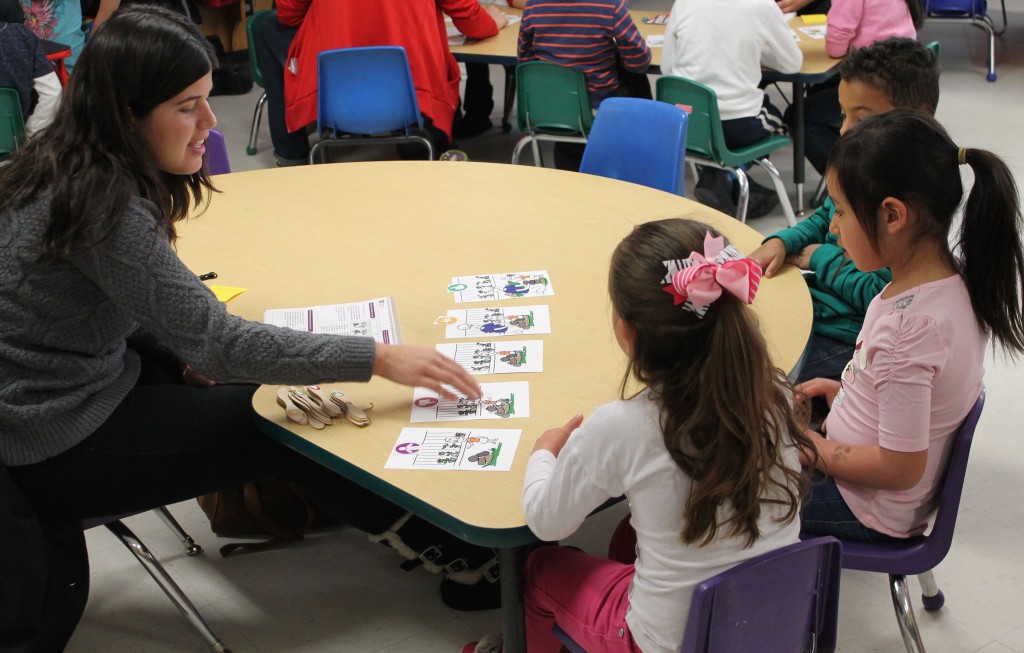NAU’s Child Development and Language Lab is developing programs for use by Head Start preschool and grade school teachers. The lab, which is part of NAU’s Institute for Human Development, is run by Trina Spencer, a language intervention and assessment researcher. Spencer works closely with a team of undergraduate and graduate students who join her at area schools to do language skill work with young students.
“One of our projects is developing curriculum to be used in Head Start preschools for students who are Spanish-speaking English language learners,” said Spencer, referring to a nearly three-year federally funded project.
Another project is underway at Puente de Hozho, a Flagstaff Unified School District grade school. The NAU team is doing language interventions with primarily English-speaking first-graders learning Spanish in the school’s bilingual program and working closely with teachers.
Spencer is able to collect valuable data for her research and the schools receive additional services at no cost.
“I appreciate our partnership,” said Cate Malone, the learning specialist at Puente de Hozho. “The collaboration is helping us do more and be more specific with our students and it gives the kids more tools in the tool box.”
One of the lab’s team members is Katherine Sanchez, a freshman from Ecuador who speaks English as a second language. “It is an amazing experience working with the kids because they are embracing learning another language,” said Sanchez, who believes speaking multiple languages removes cultural barriers and can help students throughout life.
Another student in Spencer’s lab is Chelsey Gardner who will graduate in May. Gardner received a Hooper Undergraduate Research Award for research this past fall working in a different Flagstaff primary school improving students’ vocabulary and language comprehension.

When Spencer is not conducting research and writing about evidence-based language practices, she spends time mentoring her lab students. Some team members are employees, others receive internship credit and some volunteer. While some are education majors, students come from several different NAU colleges.
In addition to the many service hours spent in local schools, the group meets twice a month to discuss scholarly articles and best practices, learning and sharing ideas that help them become better-rounded students.
NAU’s Institute for Human Development has numerous ongoing research and service projects that promote the full inclusion of people with disabilities.



